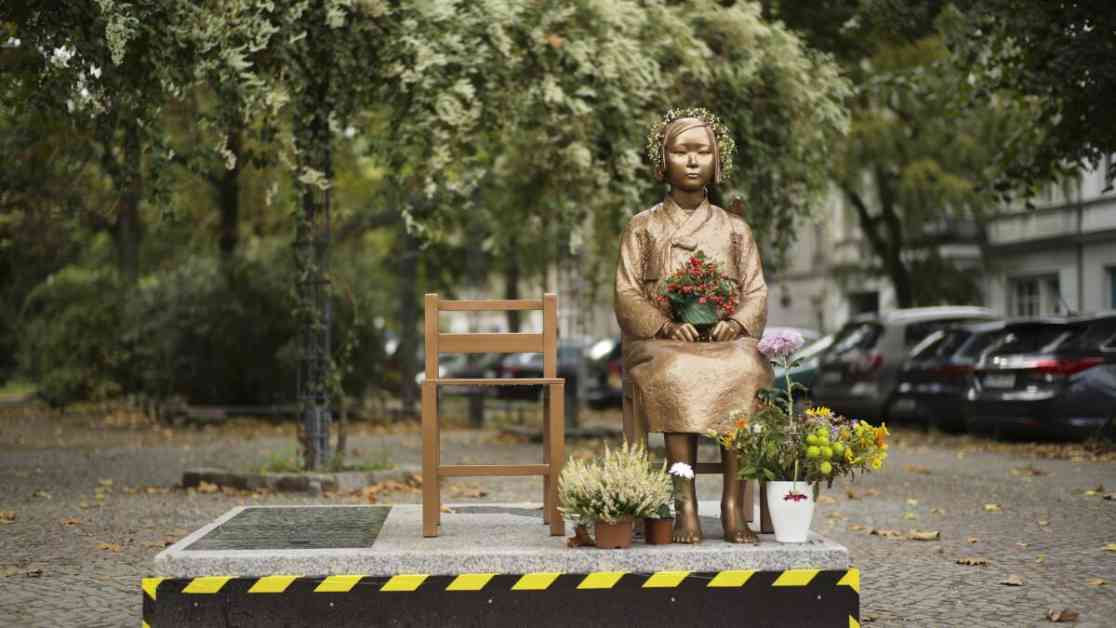Memorial Controversy: WWII Sex Slave Memorial Sparks Berlin Battle
In the heart of Berlin’s Mitte district, a bronze statue of a young girl in traditional Korean attire stands as a poignant tribute to the 200,000 so-called comfort women who were forced into sexual slavery by the Imperial Japanese military during World War II. The statue, named “Ari,” symbolizes bravery and resilience, with the young girl’s clenched fists and tense expression capturing the pain and suffering endured by these women.
To Germany’s Korean diaspora, numbering 50,000, the statue serves as a powerful reminder of a dark chapter in history that must not be forgotten. However, the Japanese government has vehemently opposed the memorial, viewing it as propaganda that stirs up past grievances and undermines their efforts to move forward.
The statue’s presence in Berlin has sparked a fierce battle between those advocating for the recognition of comfort women’s suffering and those seeking to suppress or erase this history. The German government has become entangled in this dispute, facing pressure from high-level Japanese officials to remove the statue, citing concerns over its one-sided portrayal and potential diplomatic implications.
This conflict is not unique to Berlin, as similar disputes over comfort women memorials have arisen in other parts of the world, including Southern California. However, the significance of this controversy is amplified in Germany, a country with its own complex history of coming to terms with past atrocities, particularly the Holocaust.
The unveiling of the comfort women statue in 2020 marked a pivotal moment in the ongoing struggle for recognition and justice for the victims of wartime sexual violence. Nataly Jung-hwa Han, head of Korea Verband, the civic group behind the statue, emphasized that the memorial was not meant to target the Japanese government but to foster reconciliation and understanding for a better future.
Despite efforts to portray the statue as a symbol of peace and remembrance, the Japanese government has persistently lobbied for its removal, viewing it as a constant reminder of a painful past that they believe has already been addressed through previous apologies and agreements with South Korea.
The issue of comfort women remains a point of contention between Japan and South Korea, with the majority of survivors having passed away after decades of seeking official recognition and justice. The Japanese government’s reluctance to fully acknowledge the extent of the harm inflicted on these women has fueled ongoing tensions and hindered reconciliation efforts.
In a global context, the comfort women statue in Berlin represents a larger struggle for truth, justice, and recognition of historical injustices. The statue’s significance extends beyond its physical presence, serving as a symbol of solidarity and resistance against attempts to silence or erase the stories of those who suffered during wartime.
Subheadings:
The Unveiling of the Comfort Women Statue in Berlin
Japan’s Opposition and Lobbying Efforts
The Global Impact of the Comfort Women Memorial in Berlin
As the controversy surrounding the comfort women statue in Berlin continues to unfold, it raises important questions about the role of public memorials in acknowledging and confronting difficult histories. The pushback against the statue highlights the ongoing challenges of reckoning with past atrocities and seeking meaningful reconciliation in a complex and interconnected world.



























